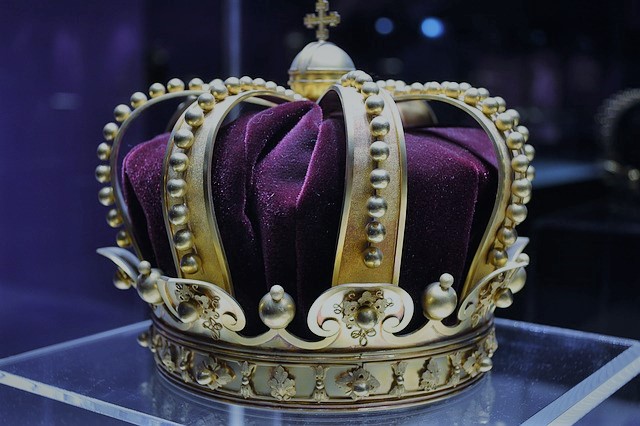CRAMMER'S GUIDE: TOP 10 QUOTES FROM ROMEO AND JULIET EXPLAINED (ACT ONE)
1
Chorus: A pair of star-cross'd lovers take their life
Scene: Prologue
Themes: fate, love
Here the chorus tells the audience what to expect right at the start of the play. The adjective "star-cross'd" implies that the lovers fate is a forgone conclusion. If this is true, we have to ask ourselves if we can blame Romeo and Juliet at all for what happens to them. A singular noun life is used to show that Romeo and Juliet are one person, they are so absolutely united in love.
2
Benvolio: I do but keep the peace / Tybalt: peace! I hate the word
Scene: Act 1 Scene 1
Themes: conflict, Benvolio, Tybalt
In this pair of quotes we see the opposing attitudes of Benvolio and Tybalt. The use of short sentences shows that the characters are definite in their beliefs. Tybalt uses an exclamation and the powerful verb "hate" to highlight his violent nature. Benvolio uses assonance of the the 'ee' sound to give his words a slow and gentle effect.
3
Romeo: O brawling love! O loving hate!
Scene: Act 1 Scene 1
Themes: love, conflict, fate, Romeo
Here Romeo is talking about his feelings for Rosaline. Coming straight after the brawl at the start of the play, the audience can see Shakespeare making links between love and violence. The oxymorons here show that love is both and positive and negative, and that it is composed only of extremes. The use of exclamations and minor sentences makes this effect even more dramatic.
4
Capulet: Let two more summers wither in their pride, / Ere we may think her ripe to be a bride.
Scene: Act 1 Scene 2
Themes: parenting, power, love, youth, Capulet, Juliet
Capulet is persuading Paris to wait to marry Juliet. He uses the lexis of agriculture ("summers", "ripe") to show that he sees Juliet as a crop that he must nurture. It may seem positive at first glance, but we might think that like a farmer, Capulet sees Juliet as his crop and he is only nurturing on order to maximise the value of the deal he can reach to secure her marriage.
5
Paris: Younger than she are happy mothers made. / Lady Capulet (Act 1 Scene 3): younger than you, [..] Are made already mothers
Scene: Act 1 Scene 2 (Paris) and Act 1 Scene 3 (Lady Capulet)
In these two quotes we see Paris and Lady Capulet using almost identical arguments to justify the marriage of the thirteen year-old Juliet to Paris. Both use the comparative "younger" to normalise the idea of the marriage. This suggests that even to a Shakespearian audience the idea of marrying so young would be uncomfortable. The two characters present a socially conservative view of marriage, where emotions and attraction are a low priority. Modern audiences are likely to disapprove of these characters.
6
Juliet: It is an honour that I dream not of.
Scene: Act 1 Scene 3
Themes: love, youth, marriage, parenting, women, Juliet, Lady Capulet
When Juliet is asked whether she has thought about marriage she says this. It is a short sentence that makes it seem as if she is being clear and direct. However the verb "dream" is ambiguous. Lady Capulet thinks it means that the idea of marriage is so exciting that Juliet could hardly think about it. The audience can see that she is really saying that she has no intention of getting married. Throughout the play we see Juliet use ambiguity with great skill, showing her intelligence, but also highlighting the restrictions that women had to live under.
7
Mercutio: If love be rough with you, be rough with love;
Scene: Act 1 Scene 4
Themes: love, Romeo, Mercutio
As the Montagues make their way to the Capulet's party, Romeo and Mercutio talk about love. Romeo is weighed down by "love's heavy burden" but Mercutio uses a bicolon to say that if love doesn't play fair with you then you shouldn't play fair in love either. The use of a conditional sentence shows Mercutio to be logical and practical where Romeo is romantic and self-indulgent.
8
Romeo: my mind misgives / Some consequence yet hanging in the stars
Scene: Act 1 Scene 4
Themes: fate, dreams, Romeo
As they approach the Capulets party, Romeo tells Mercutio about a dream he has had. The dream tells Romeo that something about that night will leas to his death. The noun "stars" is used as a symbol of fate in the play. And this is the first time where dreams and visions foreshadow later events in the play. We wonder whether Romeo is actually a helpless victim of fate, or whether he is choosing a path that leads to his destruction.
9
Romeo: O, she doth teach the torches to burn bright!
Scene: Act 1 Scene 5
Themes: love, light and dark, Romeo, Juliet
When Romeo sees Juliet for the first time his reaction is extreme. He uses hyperbole and metaphor to show us this powerful reaction. He uses alliterated plosives ('t' and 'b' sounds) to make this short sentence even more passionate. The use of an exclamation mark add to this effect even further. As an audience we have to ask ourselves whether the strength of this reaction is rational, or whether it is the product of Romeo's romanticism and immaturity.
10
Juliet: My only love sprung from my only hate!
Scene: Act 1 Scene 5
Themes: love, conflict, Juliet, Romeo
When Juliet finds out that Romeo is a Montague, her reaction is dramatic. The repetition of "my only" shows that she is thinking about herself and the unfairness of her situation. Like Romeo, there is something of self-pity about her. Her words echo Romeo's words of Act 1 Scene 1. Like him she juxtaposes "love" and "hate" suggesting that she is attracted to extreme emotions. The exclamation highlights the emotional strength of her reaction.



0 Comments